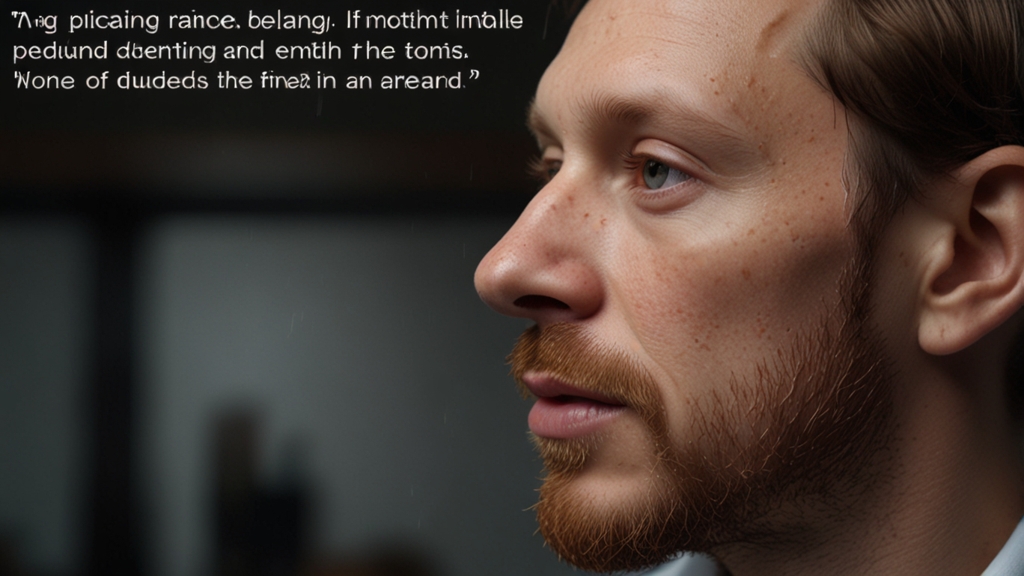Egyptian Secrets: Did Moses Steal from Pharaoh?
For centuries, the story of Moses and his dramatic escape from Egypt has captivated the minds and hearts of millions. As one of the most pivotal narratives in the Bible, it raises profound questions about history, faith, and culture. However, beneath the miraculous tales and divine interventions lies a fascinating query: did Moses, once a prince of Egypt, steal sacred knowledge or secrets from Pharaoh?
The Royal Prince and His Educations
Moses' upbringing is unique and well-documented in religious texts. As an adopted member of Pharaoh's household, he was afforded the finest education that the ancient world could offer. Egyptian royal education included the study of astronomy, mathematics, architecture, theology, and possibly even the mystical arts. It's plausible, then, that Moses would have been privy to extensive knowledge and wisdom.
According to the Book of Acts 7:22, "Moses was educated in all the wisdom of the Egyptians and was powerful in speech and action." This statement underscores his access to a wide array of Egyptian secrets. Whether these include practical skills or esoteric knowledge, it's undeniable that his education was comprehensive.
Divine Inspiration or Intellectual Appropriation?
The core of this debate hinges on the source of Moses' wisdom. After fleeing Egypt, he led the Israelites through the desert for 40 years, performed miraculous acts, and presented the Ten Commandments, which have been fundamental to Western moral philosophy. Were these divine revelations, or were they adaptations of pre-existing Egyptian doctrines?
"The comparison of Egyptian teachings with Biblical laws reveals striking similarities. For instance, the moral and legal codes in the Book of the Dead and those within Exodus share several thematic correlations." - Dr. Jane Evans, Egyptologist.
Indeed, many scholars argue that the ethical teachings and symbolism in the Torah have parallels with earlier Egyptian texts. It raises the possibility that Moses' "divinely inspired" laws might have roots in the same principles he learned in Pharaoh's palace. On the other hand, believers might argue that God's revelations to Moses were unique and transformative.
Architectural and Logistical Know-How
One cannot overlook Moses' role in the construction of the Tabernacle—an elaborate movable temple. The intricate designs and the organizational skill required for such a project bear a resemblance to what Moses might have observed in monumental Egyptian architecture, such as temples and pyramids.
"The specifications for the Tabernacle suggest a knowledge of architecture and craftsmanship that aligns with the skill levels of Egyptian builders and artisans." - John Ward, Biblical Archaeologist.
Even the logistics of Exodus itself—the coordination of a massive group of people, their sustenance, and shelter—reflect competencies that could feasibly be attributed to his Egyptian education.
The Broader Impact
Whether Moses' wisdom was divinely inspired or borrowed, its impact on culture and religion is undeniable. The ethical monotheism that Moses introduced has shaped the moral foundations of numerous civilizations. If he did indeed adapt Egyptian teachings, it would not diminish his achievements but rather emphasize his ability to synthesize and elevate the knowledge at his disposal.
Therefore, while it is an ongoing debate whether Moses stole secrets from Pharaoh, his legacy transcends the confines of history. It serves as a testament to the transformative power of knowledge, whether divine, human, or a complex interplay of both.
Conclusion
The question of whether Moses stole Egyptian secrets or was divinely inspired continues to intrigue historians, theologians, and scholars. Regardless of the origins of his wisdom, Moses remains a central figure whose impact on world history is profound. The intersection of Egyptian and biblical narratives offers a rich landscape for exploration, blending history with faith, and knowledge with mystery.









